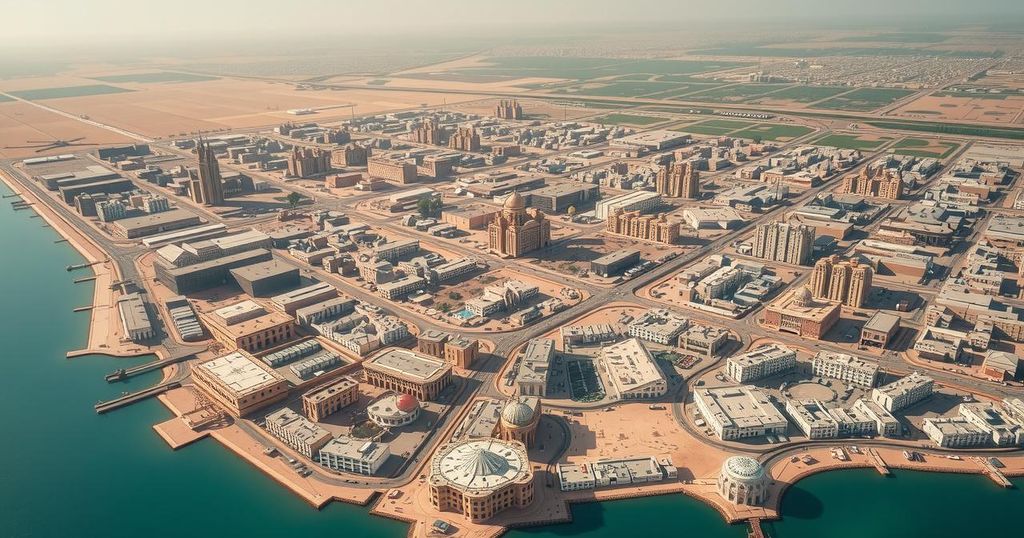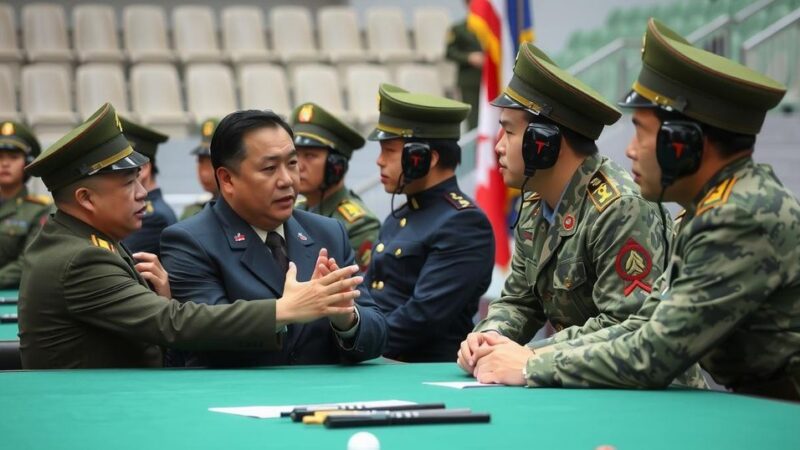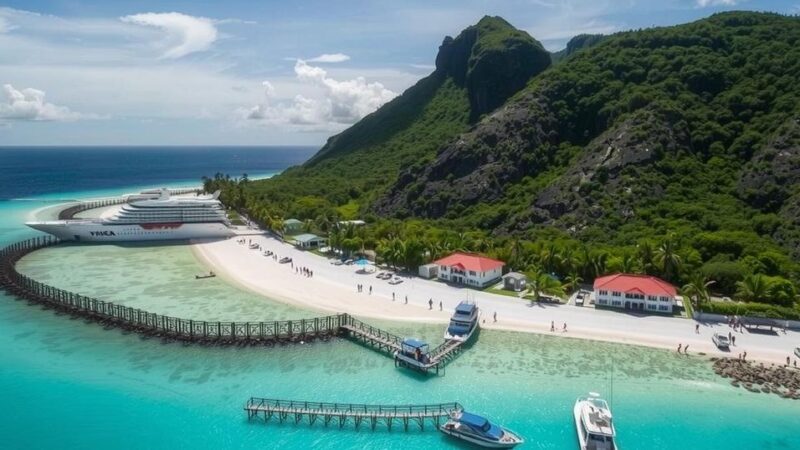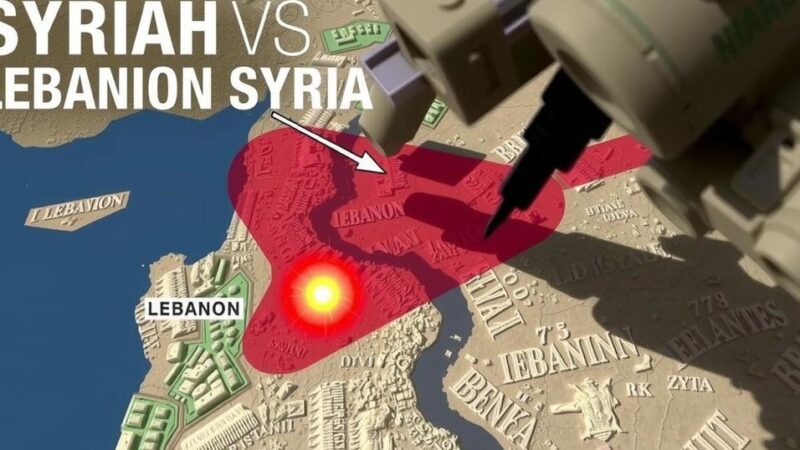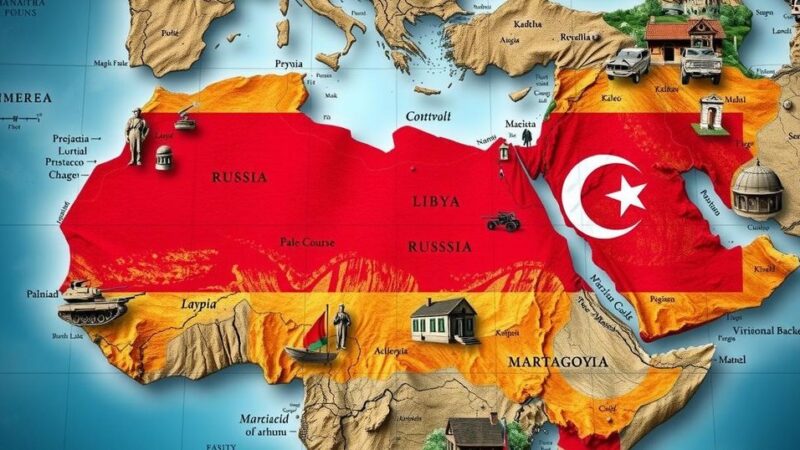The Sudanese army’s recapture of Wad Madani marks a strategic turning point in the conflict against the RSF, with military implications for supply routes and humanitarian relief. Despite this victory, the RSF retains control in other regions, and public enthusiasm reflects a desire for stability amid ongoing crises.
The recent recapture of Wad Madani by the Sudanese army marks a significant turning point in the ongoing conflict with the paramilitary Rapid Support Forces (RSF). Located approximately 200 kilometers southeast of Khartoum, Wad Madani is a critical agricultural and trading center that had been under RSF control since December 2023. The Sudanese Armed Forces (SAF) announced their efforts to secure the city, which serves as a pivotal junction for supply routes to various regions of the country. With its strategic placement, control of Wad Madani allows the SAF to cut off the RSF from accessing other vital areas, thereby impacting their operational capabilities significantly. The recapture has been met with enthusiasm from local populations, reflecting a desire for stability and relief from the RSF’s harsh governance.
The strategic importance of Wad Madani is underscored by its location in Gezira state, which acts as a nexus for logistical movements throughout Sudan. According to Al Jazeera’s Hiba Morgan, control of this hub provides a pathway to several states, including Sennar, Blue Nile, and the White Nile. This geographical advantage means that whoever holds Wad Madani possesses the ability to influence supplies into Khartoum and beyond. During the RSF’s tenure in the city, it became notorious for a slew of human rights violations, making the army’s reclaim a potential turning point for the local population as well as the broader conflict dynamics. Despite this victory, significant RSF control remains in western and southern Sudan, signifying that the conflict is far from over.
The backdrop of this conflict traces back to the fighting that began in April 2023, leading to over 12 million individuals displaced, creating a humanitarian situation deemed one of the worst worldwide. The SAF’s recent operational successes, including the capturing of territories in both Gezira and Omdurman, suggest a possible momentum shift. The army’s advancement in Wad Madani has been assisted by the defection of RSF commanders, revealing fractures within the RSF leadership.
The recapture has elicited jubilant reactions among citizens in various parts of Sudan, as evidenced by celebrations in Port Sudan and Omdurman. These reactions resonate with the broader theme of public sentiment towards an end to RSF’s control, which has been characterized by violence and repression. While the recapture of Wad Madani presents opportunities for improved agricultural productivity and a potential alleviation of Sudan’s hunger crisis, there remain concerns about the Sudanese army’s response to pro-democracy activists as it consolidates control in the area. Overall, the implications of this military achievement extend beyond territorial gains, potentially impacting the humanitarian landscape of the region.
“The leadership of the Armed Forces congratulates our people on the entry of our forces into Wad Madani this morning. They are now working to clean up the remaining rebel pockets inside the city.” – Sudanese Armed Forces Statement.
The recapture of Wad Madani is a pivotal moment in the ongoing conflict between the Sudanese Armed Forces and the Rapid Support Forces. It not only signifies a strategic military success but also aims to restore agricultural output and improve humanitarian conditions in the region. While challenges persist due to the RSF’s continued presence in other areas, the SAF’s control over this vital city may shift the momentum of the conflict and serve to galvanize public support. The long-term stability of Wad Madani, however, will depend on the army’s actions towards local citizens and its approach to handling pro-democracy movements.
Title: Recapture of Wad Madani: A Strategic Turn in Sudan’s Ongoing Conflict
Fast Summary: The Sudanese army’s recapture of Wad Madani represents a significant shift in the conflict with the RSF, enhancing control over vital supply routes and potentially improving humanitarian conditions. The city’s strategic location in Gezira state boosts the army’s operational capabilities, although the RSF retains control in other significant areas, prolonging the conflict. Local celebrations accompany the military success, emphasizing public desire for stability amidst ongoing humanitarian crises.
The conflict in Sudan escalated significantly in April 2023, as violence erupted between the Sudanese Armed Forces and the paramilitary Rapid Support Forces. Over the course of the conflict, more than 12 million people have been displaced, leading to one of the world’s largest humanitarian crises. The city of Wad Madani, underscored by its significant agricultural output and strategic location, serves as a vital junction for logistics and supply chains within the country. Control over this city affords the victor considerable leverage over the flow of resources and military operations. The RSF’s grips on territories have been marked by violent control and repression, prompting widespread discontent and a longing for stability.
In conclusion, the recapture of Wad Madani by the Sudanese Armed Forces signifies a pivotal shift in the ongoing conflict against the Rapid Support Forces. This victory not only disrupts the RSF’s territorial claims but also opens avenues for improved agricultural production, potentially ameliorating Sudan’s worsening hunger crisis. The outpouring of public support for the SAF indicates a collective desire for an end to the RSF’s dominance. However, significant challenges remain, as the RSF continues to hold substantial territories across Sudan, suggesting that the conflict’s resolution is still far from certain.
Original Source: www.aljazeera.com

